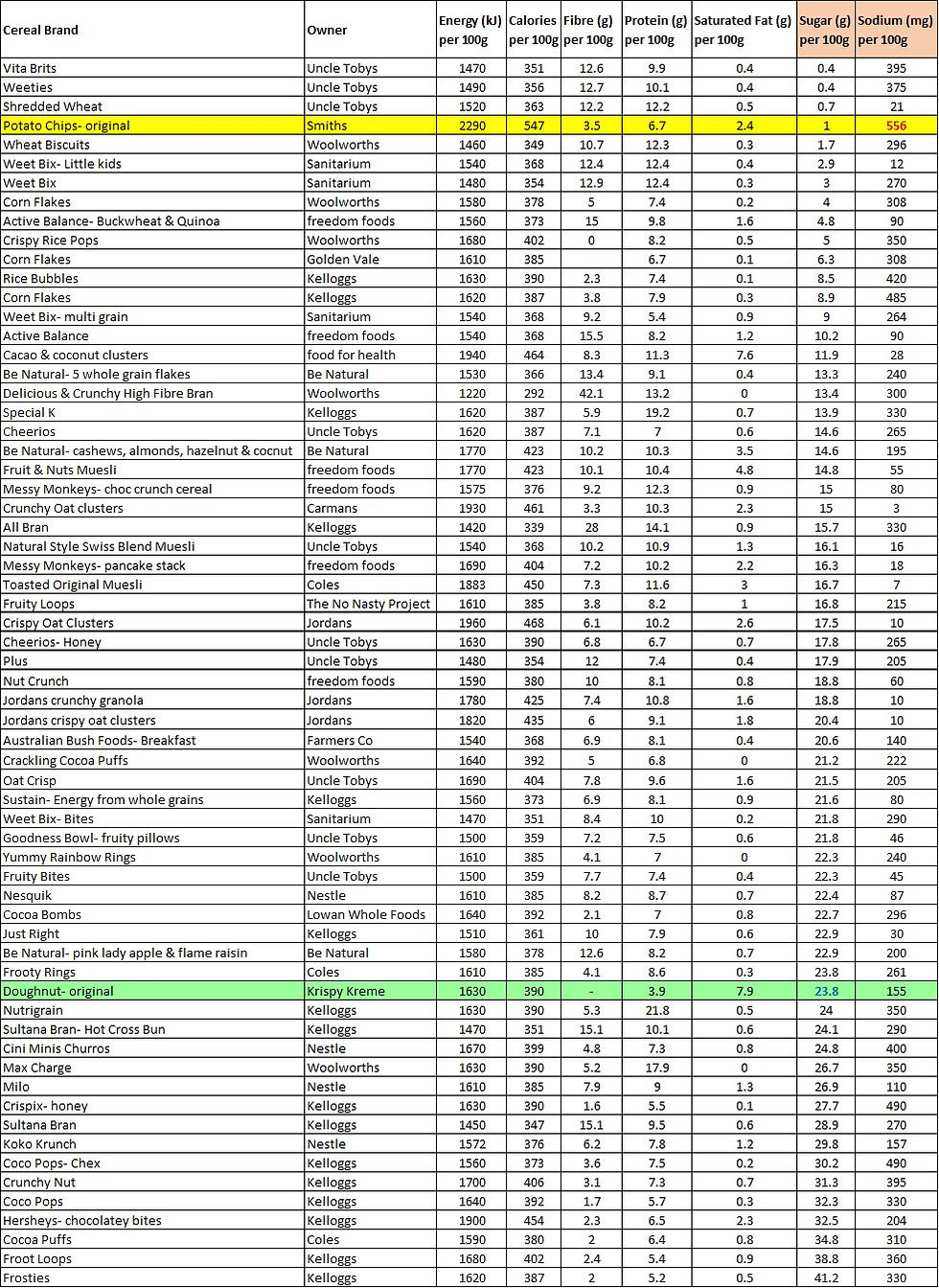Starting the day with a cereal breakfast is an easy option in the west, and supermarkets offer a wide variety and often a whole aisle of choices in Australia. As a kid I was influenced by advertisements on TV with Ironmen athletes promoting 'Kelloggs Nutrigrain'- consequently I unknowingly consumed too much sugar at breakfast which resulted in poor nutrition, low energy and concentration later in the day, and undoubtedly my poor teenage body image (weight and acne). Today I understand that companies employ scientists to tweak ratios of salt, sugar and fat to optimise taste, and I now have easy access to nutritional information so can avoid some foods. However the same cannot be said for kids, and parents trying to find foods of interest for kids. Breakfasts for me today consist of a cereal of my own making- combining my own selection of grains, seeds, nuts (aka muesli) and then adding some low sodium corn flakes for texture and fruits (banana, frozen raspberries or blueberries, ie natural sugars with fibre) to spice up a relatively bland mix.
I compiled a list of the main processed cereal makers in Australia (which includes many familiar brands in the USA).
If order by sugar content x16 of x62 brands (26%) have sugar content similar or greater than that of a Krispy Kreme original doughnut!
If order by sodium (salt) content x3 of x62 brands have salt levels on par with Potato chips!
Of the x16 brands on this list with sugar content higher than doughnuts x10 are Kellogg's brands- which makes up 63% of their brand offerings in Australia. Sugar has been known to be detrimental to health since the 1970s, particularly since the 2000s with evident obesity problems in the population. The question is why is Kelloggs promoting extraordinarily high amounts of added sugar (more than doughnuts) to kids diets? It seems they are focussed on their profits and not the consumer of their products.
Another way of looking at the data is to set maximum allowable limits for sodium (556mg ≡ potato chips) & sugar (23.8g ≡ doughnuts), draw a line and then determine any brand products outside of these parameters as unhealthy- chips and doughnuts are snacks and not considered wholesome nutritional foods. 26 of the x62 brands (42% of total) may be considered junk food- in this case 88% of Kelloggs offerings in Australia can be classed as junk food, with little/no nutritional value.
Supermarket chains here are offering their own brand of cereals, and appear to be following the (Kelloggs) multinational model- this is their opportunity to maybe halve the sugar content and greatly reduce sodium (salt) and market more healthy options locally.



コメント